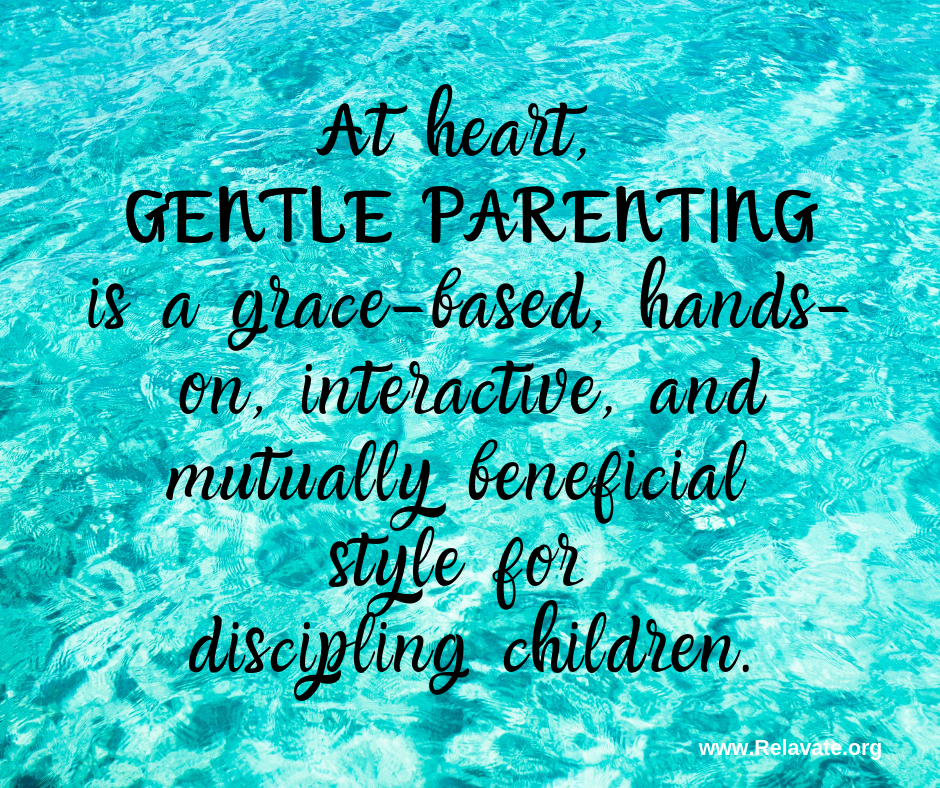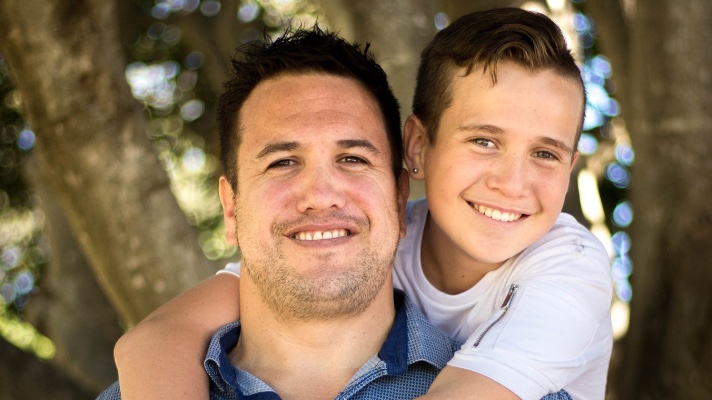How can you love your wayward child? Here are twelve ways.
[This post was written May 9, 2011, by Abraham Piper. You can find the original post at 12 Ways to Love Your Wayward Child.]
Many parents are brokenhearted and completely baffled by their unbelieving son or daughter. They have no clue why the child they raised well is making such awful, destructive decisions. I’ve never been one of these parents, but I have been one of these sons. Reflecting back on that experience, I offer these suggestions to help you reach out to your wayward child.
1. Point them to Christ.
Your rebellious child’s real problem is not drugs or sex or cigarettes or pornography or laziness or crime or cussing or slovenliness or homosexuality or being in a punk rock band. The real problem is that they don’t see Jesus clearly. The best thing you can do for them—and the only reason to do any of the following suggestions—is to show them Christ. It is not a simple or immediate process, but the sins in their life that distress you and destroy them will only begin to fade away when they see Jesus more like he actually is.
2. Pray.
Only God can save your son or daughter, so keep on asking that he will display himself to them in a way they can’t resist worshiping him for.
3. Acknowledge that something is wrong.
If your daughter rejects Jesus, don’t pretend everything is fine.
For every unbelieving child, the details will be different. Each one will require parents to reach out in unique ways. Never acceptable, however, is not reaching out at all. If your child is an unbeliever, don’t ignore it. Holidays might be easier, but eternity won’t be.
4. Don’t expect them to be Christ-like.
If your son is not a Christian, he’s not going to act like one.
You know that he has forsaken the faith, so don’t expect him to live by the standards you raised him with. For example, you might be tempted to say, “I know you’re struggling with believing in Jesus, but can’t you at least admit that getting wasted every day is sin?”
If he’s struggling to believe in Jesus, then there is very little significance in admitting that drunkenness is wrong. You want to protect him, yes. But his unbelief is the most dangerous problem—not partying. No matter how your child’s unbelief exemplifies itself in his behavior, always be sure to focus more on the heart’s sickness than its symptoms.
5. Welcome them home.
Because the deepest concern is not your child’s actions, but his heart, don’t create too many requirements for coming home. If he has any inkling to be with you, it is God giving you a chance to love him back to Jesus. Obviously, there are some instances in which parents must give ultimatums: “Don’t come to this house if you are…” But these will be rare. Don’t lessen the likelihood of an opportunity to be with your child by too many rules.
If your daughter smells like weed or an ashtray, spray her jacket with Febreze and change the sheets when she leaves, but let her come home. If you find out she’s pregnant, then buy her folic acid, take her to her twenty-week ultrasound, protect her from Planned Parenthood, and by all means let her come home. If your son is broke because he spent all the money you lent him on loose women and ritzy liquor, then forgive his debt as you’ve been forgiven, don’t give him any more money, and let him come home. If he hasn’t been around for a week and a half because he’s been staying at his girlfriend’s—or boyfriend’s—apartment, plead with him not to go back, and let him come home.
6. Plead with them more than you rebuke them.
Be gentle in your disappointment.
What really concerns you is that your child is destroying herself, not that she’s breaking rules. Treat her in a way that makes this clear. She probably knows—especially if she was raised as a Christian—that what she’s doing is wrong. And she definitely knows you think it is. So she doesn’t need this pointed out. She needs to see how you are going to react to her evil. Your gentle forbearance and sorrowful hope will show her that you really do trust Jesus.
Her conscience can condemn her by itself. Parents ought to stand kindly and firmly, always living in the hope that they want their child to return to.
7. Connect them to believers who have better access to them.
There are two kinds of access that you may not have to your child: geographical and relational. If your wayward son lives far away, try to find a solid believer in his area and ask him to contact your son. This may seem nosy or stupid or embarrassing to him, but it’s worth it—especially if the believer you find can also relate to your son emotionally in a way you can’t.
Relational distance will also be a side effect of your child leaving the faith, so your relationship will be tenuous and should be protected if at all possible. But hard rebuke is still necessary.
This is where another believer who has emotional access to your son may be very helpful. If there is a believer who your son trusts and perhaps even enjoys being around, then that believer has a platform to tell your son—in a way he may actually pay attention to—that he’s being an idiot. This may sound harsh, but it’s a news flash we all need from time to time, and people we trust are usually the only ones who can package a painful rebuke so that it is a gift to us.
A lot of rebellious kids would do well to hear that they’re being fools—and it is rare that this can helpfully be pointed out by their parents—so try to keep other Christians in your kids' lives.
8. Respect their friends.
Honor your wayward child in the same way you’d honor any other unbeliever. They may run with crowds you’d never consider talking to or even looking at, but they are your child’s friends. Respect that—even if the relationship is founded on sin. They’re bad for your son, yes. But he’s bad for them, too. Nothing will be solved by making it perfectly evident that you don’t like who he’s hanging around with.
When your son shows up for a family birthday celebration with another girlfriend—one you’ve never seen before and probably won’t see again—be hospitable. She’s also someone’s wayward child, and she needs Jesus, too.
9. Email them.
Praise God for technology that lets you stay in your kids’ lives so easily!
When you read something in the Bible that encourages you and helps you love Jesus more, write it up in a couple lines and send it to your child. The best exhortation for them is positive examples of Christ’s joy in your own life.
Don’t stress out when you’re composing these as if each one needs to be singularly powerful. Just whip them out one after another, and let the cumulative effect of your satisfaction in God gather up in your child’s inbox. God’s word is never proclaimed in vain.
10. Take them to lunch.
If possible, don’t let your only interaction with your child be electronic. Get together with him face to face if you can. You may think this is stressful and uncomfortable, but trust me that it’s far worse to be in the child’s shoes—he is experiencing all the same discomfort, but compounded by guilt. So if he is willing to get together with you for lunch, praise God, and use the opportunity.
It will feel almost hypocritical to talk about his daily life, since what you really care about is his eternal life, but try to anyway. He needs to know you care about all of him. Then, before lunch is over, pray that the Lord will give you the gumption to ask about his soul. You don’t know how he’ll respond. Will he roll his eyes like you’re an idiot? Will he get mad and leave? Or has God been working in him since you talked last? You don’t know until you risk asking.
(Here’s a note to parents of younger children: Set up regular times to go out to eat with your kids. Not only will this be valuable for its own sake, but also, if they ever enter a season of rebellion, the tradition of meeting with them will already be in place and it won’t feel weird to ask them out to lunch. If a son has been eating out on Saturdays with his dad since he was a tot, it will be much harder for him later in life to say no to his father’s invitation—even as a surly nineteen-year-old.)
11. Take an interest in their pursuits.
Odds are that if your daughter is purposefully rejecting Christ, then the way she spends her time will probably disappoint you. Nevertheless, find the value in her interests, if possible, and encourage her. You went to her school plays and soccer games when she was ten; what can you do now that she’s twenty to show that you still really care about her interests?
Jesus spent time with tax collectors and prostitutes, and he wasn’t even related to them. Imitate Christ by being the kind of parent who will put some earplugs in your pocket and head downtown to that dank little nightclub where your daughter’s CD release show is. Encourage her and never stop praying that she will begin to use her gifts for Jesus’ glory instead of her own.
12. Point them to Christ.
This can’t be over-stressed. It is the whole point. No strategy for reaching your son or daughter will have any lasting effect if the underlying goal isn’t to help them know Jesus.
It’s not so that they will be good kids again; it’s not so that they’ll get their hair cut and start taking showers; it’s not so that they’ll like classical music instead of deathcore; it’s not so that you can stop being embarrassed at your weekly Bible study; it’s not so that they’ll vote conservative again by the next election; it’s not even so that you can sleep at night, knowing they’re not going to hell.
The only ultimate reason to pray for them, welcome them, plead with them, email them, eat with them, or take an interest in their interests is so that their eyes will be opened to Christ.
And not only is he the only point—he’s the only hope. When they see the wonder of Jesus, satisfaction will be redefined. He will replace the pathetic vanity of the money, or the praise of man, or the high, or the orgasm that they are staking their eternities on right now. Only his grace can draw them from their perilous pursuits and bind them safely to himself—captive, but satisfied.
He will do this for many. Be faithful and don’t give up.
© Desiring God
Permissions: You are permitted and encouraged to reproduce and distribute this material in any format provided that you do not alter the wording in any way and do not charge a fee beyond the cost of reproduction. For web posting, a link to this document on our website is preferred. Any exceptions to the above must be approved by Desiring God. By John Piper. © Desiring God. Website: desiringGod.org




















